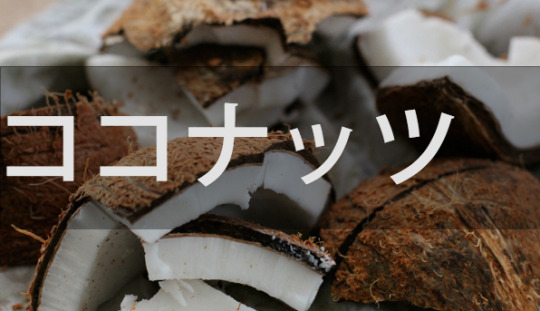Text
In Scottish Gaelic, the word for ‘woman’ is [bɛn] in the nominative singular, and [mraː] in the genitive singular. But this isn’t a case of suppletion along the same lines as that involving English go and went, where two forms originally belonging to separate paradigms come to be seen as part of the same paradigm. Both caseforms go back to Proto-Indo-European (PIE) caseforms that differed from each other in an entirely regular way. The nominative singular was *gʷénh₂, consisting of the following morphemes:
the athematic, proterokinetic root *gʷén- 'woman’ in the e-grade
the feminine suffix *-h₂- in the zero-grade
a zero ending
And the genitive singular was *gʷnéh₂s, consisting of the following morphemes:
the root *gʷn- in the zero-grade
the feminine suffix *-éh₂ in the e-grade
the athematic genitive singular ending *-s
Other proterokinetic, athematic roots formed their nominative singulars and genitive singulars in the same way, e.g. *méntis ~ *mn̥téys 'thought’.
In the course of the development into Scottish Gaelic, the following relevant sound changes happened, eventually resulting in the two caseforms sharing no phonemes at all:
PIE *h₂ “coloured” adjacent *e to *a,
Syllable-final laryngeals after vowels were lost with compensatory lengthening of the preceding vowel.
Syllable-final laryngeals after consonants were lost (eventually, after vocalizing first).
PIE *gʷ became Proto-Celtic *b.
Word-final Proto-Celtic *s was lost in Old Irish.
Proto-Celtic *bn became Old Irish mn.
Finally, mn came to be pronounced in modern Scottish Gaelic as [mr] (although it’s still spelt mn—the spellings of the two caseforms are ben and mnà, respectively).
I read about this in this interesting paper by Ronald Kim.
414 notes
·
View notes
Photo

Okay, so today’s word is [t͡sˤadiq]. This word is most notably known by its modern pronunciation — [sˤadiq] — but had a slightly different pronunciation in the early years of Islam, and in the Pre-Islamic period. Because the word صادق has both ص and ق, it’s likely even my transcription may be a bit “too modern” in its realization. The letter ق may have represented the voiced velar stop [g] in Classical Arabic (this pronunciation is preserved in archaic varieties of Arabic in the Arabian peninsula), meaning that the word may have been pronounced as [t͡sˤadig], with the [g] then shifting to [q] due to debuccalization or the letter ق simply represented both [g] and [q].
Regardless, this word brings a long ignored tie between Judaism and Islam, being that two words of the same etymological root (with some slight variation) are of prestige religiously. You have the Biblical Hebrew word [t͡sˤadik] and the Classical Arabic [t͡sˤadiq], both words having very minimal difference from each other — the difference being the Biblical Hebrew final consonant is a velar, which the Classical Arabic final consonant is a uvular.
If you wanna know more about the letter ص, there should be a post under the “#semitic by neby” hashtag regarding its realization in Classical Arabic. I’m currently eating before starting my Sawm for the day so I’m a bit too tired to place a link.
12 notes
·
View notes
Photo

So being that it is Ramadan beginning tomorrow, I decided for the whole month I’m going to post at least one Arabic word, with its Classical Arabic pronunciation — and of course, why not begin with the word رمضان?
So the word رمضان, in Classical Arabic would be pronounced as [rɑmɑɮˤɑːn], interestingly enough. This actually caught me off surprise today when I was reading up a bit and noticed the ض, which of course would mean that the word رمضان has a pharyngealized lateral fricative! This may also explain as to why the pronunciation in Indo-Iranian languages places a [z] in the place of [ɮˤ], and also why the modern Arabic pronunciation uses [dˤ]. If the coronal area of the tongue was used in the pronunciation, when the sound began to lose its articulation the logical conclusion would be that the sound shifted from [ɮˤ] > [dˤ].
Tomorrow I might do one of the 99 names of Allah (AW), الصمد.
62 notes
·
View notes
Text
Hahaha, we'll see. I need to catch up on reading papers over my gap year....
@gengogakusya lol I don’t consider you part of Langblr honestly. You are like the soon-to-be premier member of Sino-Tibetan linguistics so nah you ain’t Langblr.
2 notes
·
View notes
Text
pretty sure the only person on Langblr who actually has spoken to me is @langsandlit
oi technically I'm on Langblr too way to leave me out
(<3)
I blame the “culture” of Langblr being the fact that it’s based around learning to speak languages, and not learning about actual linguistics — since you know, learning basic phonology is just too hard to do.
The whole mentality is “why study linguistics when I can’t learn to fluently speak the language I’m studying the grammar of?”
Look. You may never learn to speak the language, but that’s no reason to not read linguistics papers about it. At least know something instead of restricting yourself to whatever is on those language learning sites.
100 notes
·
View notes
Link
Hi everyone!
I’m running a quick survey for one of my classes, and I’d really appreciate it if you participated! In it, you’ll be rating a number of images that are paired with funny (or maybe not so funny) captions. The survey should take no more than 20-30 minutes.
I’m particularly interested in how people from different countries/with different linguistic and cultural backgrounds react to the images, so everyone is welcome to participate.
Thanks!
3 notes
·
View notes
Text
yes friend
also sorry I'm never on irc lately
A proposal
I have been thinking of starting a Tumblr conlang chat. Anybody want in? If you do, PM me or reblog this post mentioning you want in or let me know otherwise somehow.
122 notes
·
View notes
Link
18/19
Tfw you're not sure what the differences between Arabic and Urdu are :/
Buzzfeed says “if you can get at least 12 correct, you’re probably a genius.”
Well, I think Langblr can get twelve, easily :P
47K notes
·
View notes
Note
1, 4, 9, 19, 62 — I dare you to do the [musˤnad] (South Arabian) script for 62, just because I'm a terrible person like that. Lmaoooo
1: All the time, tbh. I’m not really a solipsist, but I’ll have those moments of acute awareness of how the things that other people do just sort of ~happen~ and I have no access to their internal states in the way that I do my own, and suddenly everything just seems so…surreal.
4: I gave 懐かしい for someone else, but another one is muukalainen, which means “stranger” or “alien” in Finnish. I like it because when I first saw the word, I saw it as muu (another) + kala (fish) and since then have thought of strangers as being “of another fish”, haha. (This is not how the word is supposed to be broken down, to be clear; it’s actually muuka + lainen.)
9: Dark room. I’m a fan of incandescent lighting and the cozy feeling that comes from having one lamp on in an otherwise dark room. I don’t like it when rooms are too artificially bright.19: This question is so weird, hahaha. I honestly don’t know. I don’t really like the idea of forcing anyone to do anything. But I guess I could make my flatmate actually clean the apartment, for once…
62: Okay, well, they have [θ] and [ð], so those are up there, but I like the glyph for [ð] more. But it also has [ħ], so maybe that one! Have always been a fan.
(Plus if you put two [ħ] next to each other it looks kinda like 艸 which despite technically meaning grass can also mean “fuck”… xD)
1 note
·
View note
Note
I was in a hurry and forgot to specify an alphabet, so thanks for picking some hahaha
1, 4, 29, 62. :)
Okay. Let’s do this. Lol
1.) I really don’t know how to answer this. Lol I don’t really doubt anything within reason I guess? I’m not sure.
4.) My favorite word will always be [t͡ʃ’efɐt͡ʃ’ek’] (I hope I transcribed it right). Basically it’s a word in Amharic to tell people to quit arguing, or something like that. I don’t recall the actual bedrock meaning right now since I just woke up.
29.) Hm. Definitely [bʕegziʕabhər]. Although this is a Tewahedo Christian swear, it’s like saying [walˤːahi] in Arabic but that phrase is becoming really corny since social media basically devalued its meaning. But it’s definitely my favorite right next to [wəy gudə]. I usually only use [wəy gudə] when I’m speaking in Tigrinya though, it sounds weird when used as a filler for an English sentence but I’ve done it before on here.
62.) Okay, I’m going to do what you did for 62 and get all specific since the English alphabet definitely does not have my fav letter. lol wow this entire thing is basically Ethiosemitic, but the entire Fidel (“Ge'ez alphabet”) by far. I have no favorite letter for a reason. Although the original Ge’ez form of reading was definitely lost by the 12th century and that’s why symbols like ጭ, ች, ዥ, ጅ, ቕ, and ሽ came into play since well, I highly doubt Ge'ez lacked the phonemes [t͡ʃ’], [t͡ʃ], [ʒ], [d͡ʒ], [ʁ] and [ʃ]. If Tigrinya and Tigre have them, Ge’ez undoubtedly had to as well. The original abugida just simply probably used one symbol for more than one sound (a lot like the English alphabet), and probably never needed to progress past that since Ge’ez-speaker society was not entirely literate, and knowledge of reading didn’t need to be widespread for survival. Chances are, when Ge'ez script came to the Amharic-speakers, they had no clue wth was going on there and had to basically innovate the script to make it more accessible — and then that simplification rubbed off on other languages like Tigrinya, which was first written about a century after Amharic was. There’s also completely redundant symbols like ሥ and ፅ that could’ve represented more than one sound when originally used for Ge'ez, but now basically don’t have a purpose. The first one is just ambiguously used for [s] and the second for [t͡s] sometimes. Yet their origins in the South Arabian script are cool because both of them are debated on their actual value. ሥ’s ancestor in the South Arabian script may have represented a pharyngealized voiceless lateral fricative [ɬˤ] or just [ʃ], and ፅ’s ancestor may have represented a pharyngealized voiced lateral fricative [ɮˤ] like the Arabic ض. So yeah, definitely my favorite script with no favorite letter for that reason. Lol
(sorry for so much Ethiosemitic, I just love my branch of Semitic and have been studying it non-stop most of this week lol)
2 notes
·
View notes
Note
4, 28, 34, 44, 50, 62 (Cyrillic)
˛4: 懐かしい (natsukashii), probably. It’s an adjective used to describe when something reminds you of the past and makes you happy. Really useful word.28: Well, assuming it’s an island with coconuts… I’d ban the production of those toasted coconut shaving things. Because I hate them, and any food with them on it makes me sad.34: The last one I remember is that, the night before one of my Historical Linguistics psets was due, I dreamt that I had finished the pset only to find that Slava had actually assigned like three other super-long problem sets to complete. I don’t remember what was on them (it didn’t even look like ling, tbh); I just remember feeling despair. :/44: I’m hoping to go on to get a Ph.D. in linguistics, so…a grad student? (Hahaha.) But after that, a professor, probably. I’m actually always wavering on whether to go into research or to just do translation or programming, because other life goals (like wanting to live in Hokkaido) might conflict with a research path…50: I’ve definitely had weird conversations, but it’s hard to think of them on the spot! One weird thing that happened recently, though I can’t say it’s the weirdest *ever*, was this exchange. It started out like an average “getting hit on by a random stranger” situation but…Dude: Hey.Me: …………….hi.Dude: D’you know what time it is?Me: Like 7?Dude: I just moved here from Louisiana.Me: k.Dude: I’m single.Me: Er, I’m in a relationship.Dude: Well, if yo man cheats on you, you get him a government phone.Me: ……?Dude: I’m serious, if he cheats, replace his phone! Switch it out for a government phone!Me: ?????Dude (now shouting from across the street, because I had to cross): You be sure to get a government phone, aight?! Don’t let him cheat on you!!!!!
???????????????It was strange. He kept talking even after I was too far away to hear…62: I’ll probably have to go with щ (I’m partial to retroflexes), but if I can be a nerd and choose from the OCS alphabet, I’d totally go with ѭ (jǫ).(Sorry this took a while; 50 was really tough. :B )
1 note
·
View note
Note
62 - chinese ?
菜, probably! This is going by sound only, since the question was about letters originally. So cai4 is probably my favorite syllable in Chinese. But I also just like the initial /t͡sʰ/ in general, along with /ʈ͡ʂʰ/.
1 note
·
View note
Text
Why not.
If anyone happens to ask #62 please specify an alphabet (or an abugida, or an abjad, or a syllabary, or whatever)~
65 Questions You Aren't Used To
1. Do you ever doubt the existence of others than you?
2. On a scale of 1-5, how afraid of the dark are you?
3. The person you would never want to meet?
4. What is your favorite word?
5. If you were a type of tree, what would you be?
6. When you looked in the mirror this morning what was the first thing you thought?
7. What shirt are you wearing?
8. What do you label yourself as?
9. Bright room or dark room?
10. What were you doing at midnight last night?
11. Favorite age you’ve been so far?
12. Who told you they loved you last?
13. Your worst enemy?
14. What is your current desktop picture?
15. Do you like someone?
16. The last song you listened to?
17. You can press a button that will make any one person explode. Who would you blow up?
18. Who would you really like to just punch in the face?
19. If anyone could be your slave for a day, who would it be and what would they have to do?
20. What is your best physical attribute? (showing said attribute is optional)
21. If you were the opposite sex for one day, what would you look like and what would you do?
22. Do you have a secret talent? If yes, what is it?
23. What is one unique thing you’re afraid of?
24. You can only have one kind of sandwich. Every sandwich ingredient known to humankind is at your disposal.
25. You just found $100! How are you going to spend it?
26. You just got a free plane ticket to anywhere in the world, but you have to leave immediately. Where are you going to go?
27. An angel appears out of Heaven and offers you a lifetime supply of the alcoholic beverage of your choice. “Be brand-specific” it says. Man! What are you gonna say about that? Even if you don’t drink booze there’s something you can figure out… so what’s it gonna be?
28. You discover a beautiful island upon which you may build your own society. You make the rules. What is the first rule you put into place?
29. What is your favorite expletive?
30. Your house is on fire, holy shit! You have just enough time to run in there and grab ONE inanimate object. Don’t worry, your loved ones and pets have already made it out safely. So what’s the one thing you’re going to save from that blazing inferno?
31. You can erase any horrible experience from your past. What will it be?
32. You got kicked out of the country for being a time-traveling heathen who sleeps with celebrities and has super-powers. But check out this cool shit… you can move to anywhere else in the world!
33. The Celestial Gates Of Beyond have opened, much to your surprise because you didn’t think such a thing existed. Death appears. As it turns out, Death is actually a pretty cool entity, and happens to be in a fantastic mood. Death offers to return the friend/family-member/person/etc. of your choice to the living world. Who will you bring back?
34. What was your last dream about?
35. Are you a good….[insert anything you’d like here]?
36. Have you ever been admitted to the hospital?
37. Have you ever built a snowman?
38. What is the color of your socks?
39. What type of music do you like?
40. Do you prefer sunrises or sunsets?
41. What is your favorite milkshake flavor?
42. What football team do you support? (I will answer in terms of American football as well as soccer)
43. Do you have any scars?
44. What do you want to be when you graduate?
45. If you could change one thing about yourself, what would it be?
46. Are you reliable?
47. If you could ask your future self one question, what would it be?
48. Do you hold grudges?
49. If you could breed two animals together to defy the laws of nature, what new animal would you create?
50. What is the most unusual conversation you’ve ever had?
51. Are you a good liar?
52. How long could you go without talking?
53. What has been you worst haircut/style?
54. Have you ever baked your own cake?
55. Can you do any accents other than your own?
56. What do you like on your toast?
57. What is the last thing you drew a picture of?
58. What would be you dream car?
59. Do you sing in the shower? Or do anything unusual in the shower? Explain.
60. Do you believe in aliens?
61. Do you often read your horoscope?
62. What is your favorite letter of the alphabet?
63. Which is cooler: dinosaurs or dragons?
64. What do you think about babies?
65. Freebie! Ask anything interesting you can think of.
572K notes
·
View notes
Photo

Please appreciate this Japanese shitpost
87K notes
·
View notes
Photo

So way back when, like a month ago (I think?), I had originally made a post about this lexical item in the Sana‘ani dialect(s) of Yemeni Arabic. So the item in question is [demːeh], which in short is just a general house cat. Nothing special right? I mean, why would the word for a house cat be so interesting? Well, that’s because the word is Semitic in origin, but not Arabic.
So the word [demːeh] is a bit alien in relation to other dialects of Arabic — which typically use the Arabic word [qˤitt]. So yeah, right off the bat it’s a bit interesting. But where did this word come from and how did it enter into Sana‘ani Arabic? First the word has to be discussed before any point of origin can be purposed. Obviously, Semitic languages work on a root-based morphological system, known as non-concatenative morphology. So the root form for the Arabic word, [qˤ-t-t], is of course not the same as the Sana'ani word, [d-m]. The final [-eh] on the word may simply be a colloquial pronunciation of the singular 3rd person masculine marker [-hu/-hi] — I’m not exactly sure. But for sure, the word is in no relation root wise to the common Arabic form. There is one Arabic root form that is similar, [d-m-h], but this root etymologically means a small home. So where would it have had come from?
Throughout all of Semitic, there is only one group of languages who use the root form [d-m] to refer to the general house cat, which is Ethiosemitic. Yet, this transfer couldn’t have been recent. While Amharic and Tigrinya do use these root forms, [dəmɐt] and [dəmu] respectively, neither of these languages could feasibly be the origin of the term in Sana'ani Arabic. If there is populations of either speech communities within the general area within or around Sana‘a, they’d be a recent development and definitely would not have that much influence on the colloquial varieties of Arabic within this general area. So those two are ruled out. And of course, it couldn’t be Tigre. Tigre is fairly confined to western Eritrea and the easternmost of Sudan. So which language could it be?
Interestingly enough, this word probably wasn’t originally loaned into Sana'ani Arabic directly from an Ethiosemitic language — if the loan from an Ethiosemitic language is to be considered the most plausible scenario. This would mean one would have to go back to the early 5th century, when an Ethiosemitic was actually spoken in Sana'a on a large scale. In the 5th century, a ruler of Aksum known as Kaleb invaded the kingdom of Himyar, who’s capital was Sana'a. Kaleb was invading because the Jewish king of Himyar, Yusuf As'ar Yath'ar (pronounced as [yusuf asʔar yaθar]) was well, killing local Christian communities. And of course Kaleb, as a Christian monarch, was simply not going to stand for this.
So what Kaleb did is he sent his mostly Ge'ez-speaking army into the Arabian peninsula, in toward the Sayhad on which Sana'a sits. In doing so, he conquered the Himyarites but also provided a fertile breeding ground for language contact across Semitic languages which hadn’t had much extensive contact historically. While the Aksumites knew Sabaean to some degree, like the Himyarites, the Himyarites did not know Ge'ez. The Himyarites themselves spoke a fairly unknown Semitic language known as Himyaritic, and alongside this there was the ethnic Sabaeans of the Sayhad who spoke Sabaean as a first language. So what is now known as Old Sana'a was once a place of linguistic diversity that was higher than the level of mere distinctions between Jewish and non-Jewish dialects of Sana'ani Arabic. Obviously, Kaleb did not stay in control. Shortly after, one of his generals decided to overthrow the local governor placed in power by Kaleb and proceeded to claim the Sayhad as his own kingdom apart from Aksum.
Yet, in all of this, the answer to the origin of [demːeh] may lie. The Ge'ez form of the word, [dəmːɐt], in many ways is similar to the modern day Sana'ani form. While the Ge'ez form has a different vowel inventory and does have the feminine/plural marker [-t], this can be explained. It’s very likely that the Sabaean and Himyaritic-speakers may have adopted the lexeme or that perhaps, descendants of left over Ge'ez-speaking soldiers simply kept the lexeme. Either or is feasible. It may also be that the breed of cat known as an Abyssinian may have came to the Sayhad via the Aksumite settlers who came after the soldiers took over. So perhaps this is the actual origin of the word. Perhaps the Abyssinian cat became the common cat in the post-Askumite period, and the word stuck.
Historically it makes sense, and given that both forms have a gemination of the second consonant this could also be a sign of the relationship between the two lexical items. It’s very likely that while the lexeme may have not changed right away, the fact that 300 years after the expulsion of the Aksumites a new language — Arabic — took prestige, that the word adopted an Arabic suffix and perhaps a new vowel inventory. Given, the survival of Ge'ez into the period of Arabic’s introduction is unlikely, the word may have already been slightly been changed by either Himyaritic or Sabaean. Regardless, this word is an interesting case of how something so small can have such a large story.
12 notes
·
View notes
Link
“本来” (běn lái) and “原来” (yuán lái), are often used in daily Chinese conversation. Sometimes they are interchangeable, but they are also used in different ways depending on the context. Today we will talk about how to use them correctly!
http://bit.ly/1XGypjK
32 notes
·
View notes
Photo
Okay but
クリ無しココナッツ








Fruits in Japanese part 3
Chesnuts
Pear
Coconut
Raisins
Blackberry
Plum
Grape
Fig
434 notes
·
View notes